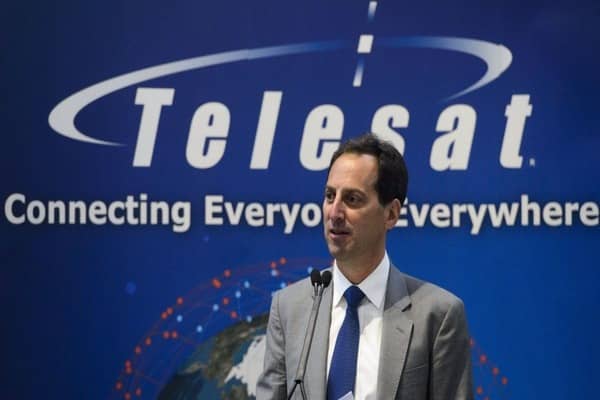A $2.14-billion federal loan for Ottawa-based satellite operator Telesat has sparked debate among Canadian politicians about whether American billionaire Elon Musk presents a national security risk. The issue centers on providing internet access to remote areas, as Canada aims to connect every household to high-speed internet by 2030. Telesat’s CEO, Dan Goldberg, noted that there are “some misunderstandings” about the nature of the deal with the government. Recently, the Liberal government announced the loan to Telesat, which plans to launch a constellation of low Earth orbit satellites to connect the most isolated regions of the country.
Conservative MP Michael Barrett criticized the price tag, questioning Musk on social media about the cost of providing his Starlink service to every Canadian household without high-speed access. Musk replied that it would be “less than half that amount,” prompting Barrett to label it a “common-sense solution.” In response, Goldberg rejected this comparison, emphasizing that Telesat is receiving a loan, not a grant, and will pay the government a nine percent interest rate. Additionally, the Quebec government is contributing $400 million, and Telesat will relinquish around a 12 percent equity stake to both governments.
Goldberg pointed out, “No one asked Elon, ‘Do you want a $2-billion loan from the government of Canada at a nine percent interest rate and give up 10 percent of Starlink?'” He also mentioned that a portion of the loan would benefit Musk’s SpaceX, which Telesat uses to launch its satellites. A spokesperson from Innovation Canada confirmed that this new loan replaces a previously announced $1.44-billion loan from 2021 that did not move forward. The government is also committed to spending $600 million to purchase internet capacity once the system is operational, as part of its initiative to ensure high-speed internet access for all Canadian households by 2030.
The last remaining communities are the hardest to connect because they rely on satellite services. Traditional satellite internet, which uses geostationary satellites, has limitations. In contrast, newer low Earth orbit satellite systems, like Telesat’s and Musk’s Starlink, employ many satellites in lower orbits, providing faster internet without the same constraints Following Barrett’s exchange with Musk, Innovation Minister François-Philippe Champagne accused the Conservatives of jeopardizing national security, stating, “In the far North, you need a reliable network with sovereignty and resiliency.” He emphasized that Telesat’s system would be designed and manufactured in Canada, enhancing sovereignty and resiliency, particularly for critical military infrastructure.
The Conservatives maintain that Musk’s Starlink would be a better option. Industry critic Rick Perkins argued that there is already an established platform capable of delivering high-speed internet without the need for significant taxpayer funding. They also attempted to link the contract to former Bank of Canada governor Mark Carney, recently appointed as an economic adviser to the Liberals, claiming a conflict of interest. Deputy Conservative leader Melissa Lantsman pointed out that Carney’s “close friend, the CEO of Telesat, received over two billion in Canadian tax dollars for a broadband network that could have been built for less.”
Goldberg acknowledged his friendship with Carney but asserted, “He had absolutely nothing” to do with the loans. In announcing the loan, the Prime Minister’s Office highlighted that Telesat would provide capacity to the defense sector and support NATO and Norad modernization efforts. However, Goldberg clarified that the agreement does not specify defense use. He indicated that Telesat’s constellation could significantly contribute to Norad modernization. In 2022, the Liberal government outlined a $38.6-billion plan to upgrade the joint aerospace warning system for Canada.
In the past week, Musk has generated controversy by sharing misinformation and making inflammatory statements about U.S. politics. Goldberg emphasized the importance of maintaining contracts with Canadian companies in the strategic space sector, which is capital-intensive. “Governments worldwide are partnering with their domestic operators,” he noted.
Adam Lajeunesse, an associate professor at St. Francis Xavier University specializing in Arctic and maritime security, acknowledged valid concerns about Arctic defense and national security. He pointed out that while Starlink could meet the Canadian Armed Forces’ needs now, it’s essential to consider potential future scenarios. “Strategic communications are vital for all safety and security operations across the North, not to mention civilian activities,” he stated, cautioning against relying on a single supplier, especially one beyond government control.



